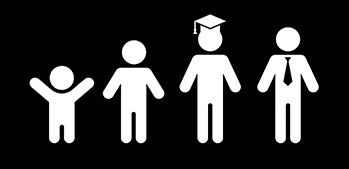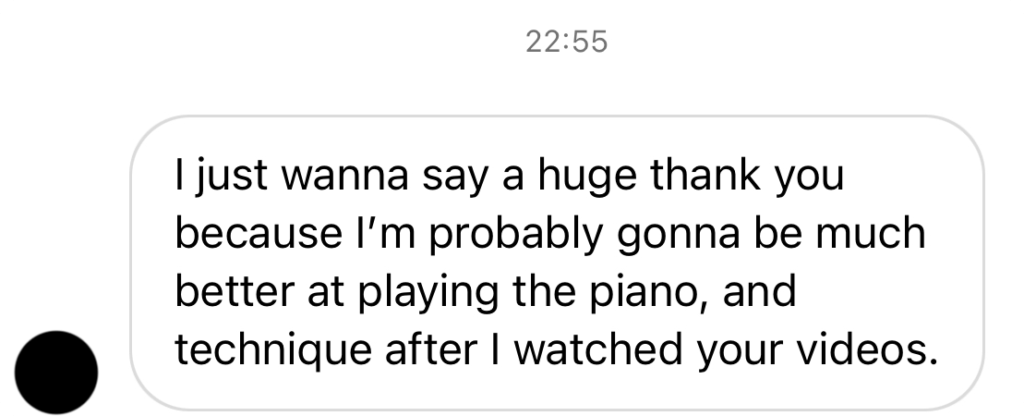Watch instantly.

Uncover the secrets to exceptional piano technique without relying on natural talent.

Many pianists worldwide are already experiencing unprecedented technical improvement.

Massive number of content-rich short videos suitable for both beginers and advanced players
The revolutioniser of piano practise - Dorian Marko, pianist and multi-business owner gives never-seen-before insight into specialist practise methods that - in a fraction of the time that you'd spend hammering away at your keys for hours on end - can skyrocket your technical ability and control to levels you've only ever associated with the child prodigies and god-given natural talents of the planet. Dorian gives ground-breaking analysis and proof of how the lack of evolution in modern day piano teaching methods is the reason for the standstill and progression wall that you have hit despite your unlimited hours of daily practise and faultless work ethic.
In his introduction, Dorian Marko explains why piano study has fallen behind in today’s fast paced, highly competitive world, and the new path you will undertake towards technique you never thought you would ever achieve.
Introduction and explanation as to how this course is structured to best take your technique to new levels quickly and efficiently.
A controversial title used to clarify an important message. Music is not speed, but speed is technique, and there’s no music without technique.
Understand your brain, understand how to use it better, think faster and, store more information quicker and more efficiently.
Ensure your technique improves continually, stays in good form, and avoid bad habits, by understanding your conscience, subconscience, and their roles and relations.
A commonly repeated myth finally debunked. Optimize and fine tune your muscles especially for piano technique.
Learn a specific hidden and forgotten movement neglected by 99% of conventional piano practice styles, to make your runs, arpeggios, scales and other fast passagework soar.
Various powerful, specific, highly targeted exercises for this constantly neglected movement and set of muscles.
An extremely simple exercise you can do for a few minutes per day in order to optimize your piano technique via the relevant mechanisms in your hands and arms.
Upgrade your coordination. Most pianists use a metronome, but it is more critical than you think, for reasons you were not even aware of. Learn exactly when and how to use your metronome to speed your technique on its way.
There’s a huge difference between high and low fingers. A simple adjustment can multiply the momentum and speed your fingers hit the keys with easily and comfortably.
A revolutionary, obscure but unbelievably powerful practice method Dorian Marko has invented himself. He asserts this as one of the most valuable things he has discovered in developing virtuosic piano technique.
The lifting of the fingers is as crucial as the pressing. If there is imbalance, your technique will suffer. Balance the two out with this simple exercise.
There is faster music, and there is slower music, but even in slow music, your brain does not slow down as much as the music does. Learn slow delicate control through high speed cognitive control.
A specific, training method refined by Dorian which you can use to build speed and ease specifically in awkward hand positions with strange stretches and crossovers.
The anti-matter of piano practice. Where there is a press, there is also a lift, and the lift is half of your speed, yet you are not taught to train it. Learn how, with this effective exercise.
Joint collapse, its implications on weakening your technique, and what you can do to overcome this.
Dorian has discovered an alarming error in the way pianists group notes in fast passages. With this alternative but similar exercise, you will gain both speed and ease of movement.
An extension with further context, examples and variations.
Something most pianists do, and the opposite from how a world-level athlete trains. Learn why and how you should push your limits regularly to establish a consistent, steep improvement rate.
Your brain needs to think at high speeds to keep up with your hands. If it cannot, you risk mistakes, messy playing and stopping completely. Learn a simple brain hack which will make even the quickest playing “feel” easier and slower.
A set of specific exercises to teach your hands and fingers to land evenly, firmly and powerfully so you have full control over your sound in chord passages.
You may have thought fast, high-capacity memorization and visualization was for prodigies and geniuses. Think again. Dorian Marko teaches you how to get the notes from the paper into your muscle memory, even without a piano.
Dorian takes you through every step in his mind, as he uses this technique to inject music direct from the page into his brain and muscle memory.
Another novel training method developed by Dorian to train finger agility and efficiency in movement. Increase your ease of speed and reduce your room for error by improving on this key aspect.
Blindingly fast octaves are one of the hallmarks of a virtuoso pianist. Dorian presents his own, groundbreaking methods to develop blinding octave speed, once again looking as aspects of technique completely missed by piano educators.
4th finger octaves are much more straining on the hand and wrist than 1-5 octaves, but luckily, there are some quick exercises available to alleviate this strain.
Two completely opposite, but at the same time, complementary exercises, which will push your octave playing limits harder and faster.
Play rapid, repeated octaves with ease and free from strain. Learn a key movement you can add to your technique in order to save yourself from a lot of strain and tiredness.
Play with ease and alleviate the strain from your thumbs with correct rotation. This is a commonly spoken about technique in piano, but if often taught and trained poorly.
Flexibility is understood, but mobility is not. Shockingly, mobility is a key necessity in playing the piano, and yet most pianists cannot correctly describe exactly what mobility is and how to train it.
Jump with sniper-like accuracy, whether it be the start of La Campanella, or the thundering feared double chord jumps in the Rach 3 Ossia cadenza. Dorian even gives away his training method used to develop his blisteringly fast Rach 3 ossia cadenza.
Most slow practice done by pianists is unproductive and – not to beat around the bush – useless. There is however, a way to modify this sort of practice to make it targeted and useful.
Ever felt that you learn something and then it gets worse over time no matter how much you practice? This can be corrected, and you will learn exactly how to learn a piece of music in order to prevent this.
Dorian Marko explains his personal method for curing himself from cold hands with an extreme athlete’s technique.
An explanation as to the physical implications of toxicity, how it affects not just your mental health, but also memory skills, motor neuron skills, brain function, bone health, and how to overcome it.
There were piano masters before this course existed, so why would you need this course to achieve mastery, if others have already done it via other methods? The answer is crucial, pay attention.
- Gia B
- Shivam T.




Just $15 per month (billed annualy)